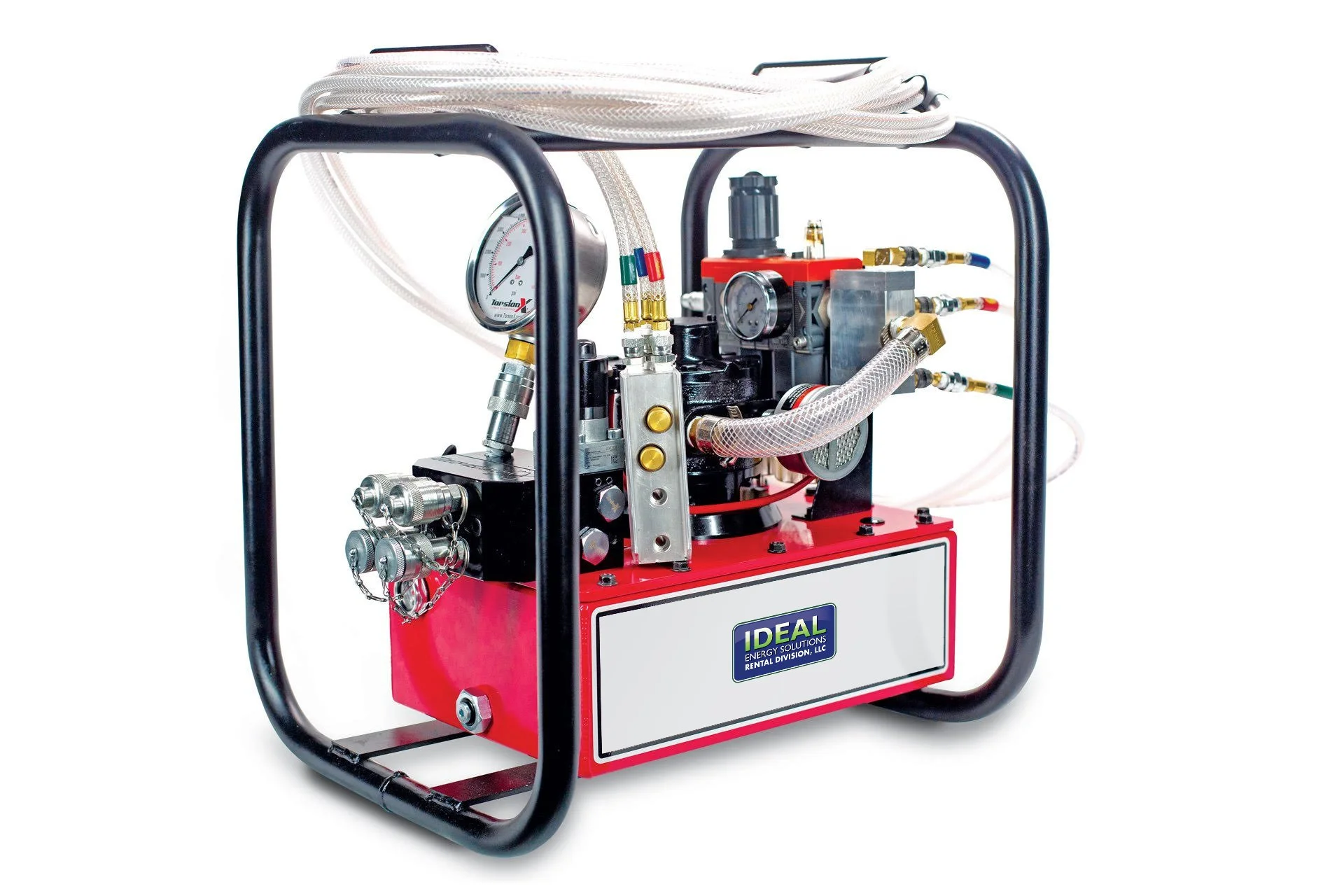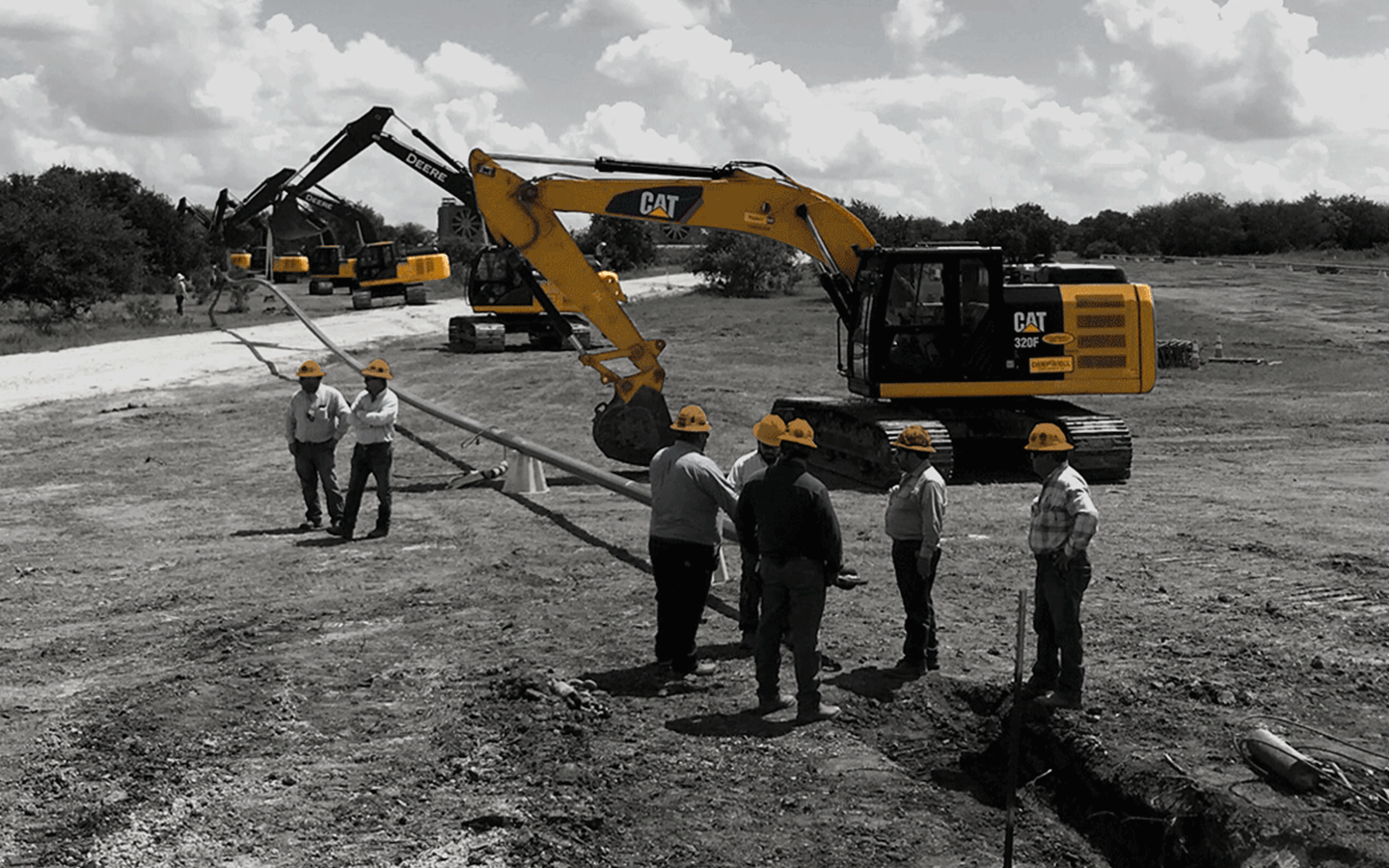A Comprehensive Overview to the Different Kinds Of Oil Field Equipment and Pipeline Equipment Available
The oil and gas market depends heavily on specialized devices for efficient removal and transportation. Numerous kinds of equipment, from piercing rigs to tank, play vital roles in this complex process. Each tool serves distinctive features that add to overall operational success. Comprehending these elements is necessary for any individual associated with the sector. As the industry evolves, so as well do the innovations that support it. What improvements are on the perspective?

Drilling Rigs: The Foundation of Oil Exploration
Drilling rigs act as the vital equipment in the domain of oil expedition, enabling firms to access hydrocarbon books hidden deep below the Planet's surface. These rigs are available in numerous types, consisting of land rigs, offshore rigs, and mobile devices, each developed to run in certain environments. Furnished with advanced innovation, piercing rigs can pass through geological formations with precision, making sure reliable source extraction. The structural stability and operational abilities of these rigs are essential, as they must stand up to severe problems and significant stress. The option of a boring gear impacts the total project expense and timeline, making it a vital factor to consider for oil companies seeking to maximize their expedition efforts and optimize performance in their procedures.
Pumps: Crucial for Liquid Movement
In the oil removal procedure, the function of pumps is substantial, helping with the motion of fluids throughout different phases of production. Pumps are essential for carrying petroleum, water, and other fluids from below ground reservoirs to the surface area and afterwards with pipelines to refineries. They are available in various kinds, consisting of centrifugal, favorable displacement, and completely submersible pumps, each serving details objectives based upon the fluid characteristics and functional demands. Centrifugal pumps are typically made use of for their efficiency in high-flow applications, while positive variation pumps master dealing with thick liquids. The choice of pump influences general efficiency, functional security, and maintenance prices. Appropriate selection and upkeep of pumps are important for maximizing manufacturing and minimizing downtime in oil area procedures.
Shutoffs: Controlling Circulation and Pressure

Shutoffs play a vital role in handling the flow and pressure of liquids within oil areas and pipes. Various kinds of shutoffs offer distinctive applications, each developed to accomplish certain features fundamental for effective procedure - Superior rentals squeeze tools. Understanding the characteristics and uses of these valves is vital for enhancing system efficiency and safety
Kinds of Valves
Essential components in oil area procedures, valves play an essential function in regulating the flow and pressure of fluids within pipelines and devices. Numerous sorts of shutoffs are made use of to satisfy the varied requirements of oil and gas production. Common types consist of entrance valves, which offer a straight-line flow and minimal stress decrease; globe valves, known for their strangling capacities; and ball shutoffs, identified for their fast on/off control. Furthermore, check valves prevent heartburn, while butterfly shutoffs provide a lightweight remedy for controling flow. Each valve kind is made with specific products and setups to withstand the severe conditions frequently found in oil areas, ensuring integrity and effectiveness in operations. Recognizing these types is crucial for effective system administration.
Valve Applications and Features
While different sorts of valves offer distinctive objectives, their primary applications revolve around managing flow and stress within oil and gas systems. Shutoffs such as gateway, globe, and ball valves regulate fluid activity, making certain peak performance and safety. Gateway shutoffs are commonly utilized for on/off control, giving minimal circulation resistance. Globe shutoffs, on the various other hand, offer specific flow guideline, making them appropriate for strangling applications. Sphere shutoffs are favored for their quick procedure and limited sealing abilities. Additionally, pressure safety valve are critical for protecting against system overpressure, guarding devices stability. Overall, the proper option and application of valves boost operational effectiveness, ensuring the trustworthy transportation of oil and gas through pipes and handling facilities.
Compressors: Enhancing Gas Transport
Compressors play an essential function in the reliable transportation of gas, guaranteeing that it moves smoothly through pipelines over long distances. These gadgets raise the stress of natural gas, enabling it to get over friction and altitude modifications within the pipeline system. In addition, compressors facilitate the balancing of supply and demand, fitting variations in consumption and production rates. Different kinds of compressors are employed in the industry, including centrifugal, reciprocating, and rotary screw compressors, each offering distinct advantages based upon the functional needs. Normal upkeep of these compressors is important to take full advantage of effectiveness and reduce downtime, eventually adding to a trusted gas transport network. Their critical function underscores the importance of compressors in the overall oil and gas framework.
Storage Tanks: Safe and Reliable Liquid Administration
Effective transportation of gas relies upon various supporting systems, among which is the appropriate administration of storage containers. These storage tanks play a vital role in securely consisting of fluids, ensuring that functional performance is preserved while decreasing environmental threats. Built from long lasting materials, they are created to stand up to high pressures and harsh components. Appropriately sized and tactically located, storage space tanks help with the smooth circulation of natural gas and various other liquids, find here avoiding bottlenecks in supply chains. Routine upkeep and monitoring are crucial to detect leakages or architectural problems, promoting safety and compliance with governing standards. Inevitably, the efficient management of storage tanks is important for the general honesty and integrity of the oil and gas sector's fluid handling systems.
Pipeline Equipments: Infrastructure for Transport
Pipeline systems function as the foundation of the oil and gas industry, assisting in the efficient transportation of hydrocarbons over huge ranges. These systems include different parts, including pipes, valves, pumps, and compressors, all diligently designed to ensure smooth circulation. The products used in pipeline building, commonly steel or high-density polyethylene, are picked for toughness and resistance to corrosion. Pipeline networks can extend throughout land and water, connecting production sites to refineries and distribution. Furthermore, progressed technology allows real-time tracking of circulation prices and stress degrees, boosting functional efficiency. The tactical placement of these pipelines reduces environmental impact while making best use of source access, thereby playing an important function in meeting power demands worldwide.
Security Equipment: Making Sure Employee and Environmental Management
The operation of pipeline systems, while vital for energy transport, also offers considerable security difficulties for employees and the environment. Safety tools plays a substantial function in reducing these dangers. Personal safety devices (PPE) such as helmets, handwear covers, and non-slip shoes safeguards workers from physical hazards. In addition, gas detection systems monitor for leakages, guaranteeing that hazardous substances do not posture a risk to personnel or the bordering community. Emergency situation shutdown systems are vital for quickly halting procedures throughout a crisis, protecting against prospective disasters. Spill control products, including absorbents and obstacles, are fundamental for decreasing environmental influence. Generally, spending in all-encompassing security tools is important for keeping functional stability and protecting both employees and the atmosphere in the oil and click this site gas field.

Regularly Asked Inquiries
Just how Do I Pick the Right Oil Field Equipment for My Project?
Picking the right oil area tools involves examining task requirements, budget plan constraints, and operational requirements. Think about factors such as devices integrity, compatibility with existing systems, and the distributor's reputation to guarantee peak efficiency and safety and security.
What Are the Maintenance Requirements for Oil Field Equipment?
Upkeep demands for oil field equipment consist of routine evaluations, lubrication, and prompt repair services. Operators must likewise adhere to supplier guidelines, screen performance metrics, and warranty compliance with safety guidelines to enhance long life and effectiveness.

Exactly How Can I Make Certain Conformity With Environmental Regulations?
To ensure conformity with environmental laws, companies need to perform normal audits, apply finest practices, invest in training, preserve appropriate paperwork, and stay updated on regulations (Superior Oilfield Rentals Texas). Partnership with environmental companies can also enhance adherence to regulations
What Is the Average Life-span of Pipeline Equipment?
The ordinary life expectancy of pipeline devices usually ranges from 20 to 50 years, depending on variables such as worldly high quality, environmental conditions, and upkeep methods. Routine evaluations can greatly affect durability and operational performance.
Just how Do I Securely Deliver Oil Field Equipment to Remote Locations?
Delivering oil field equipment to remote areas needs careful preparation, including course evaluation, securing authorizations, utilizing appropriate lorries, and Continued making sure safety methods are complied with. Proper training and interaction among teams are important for effective transportation.